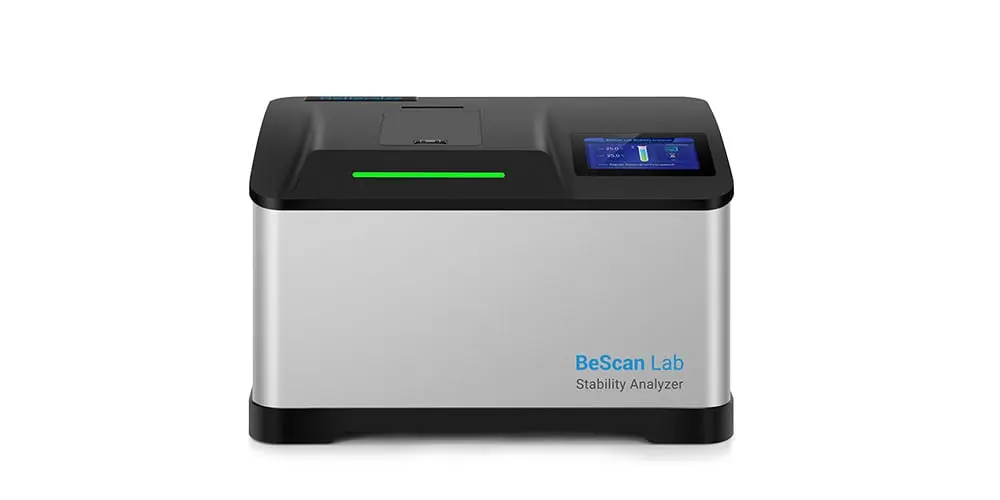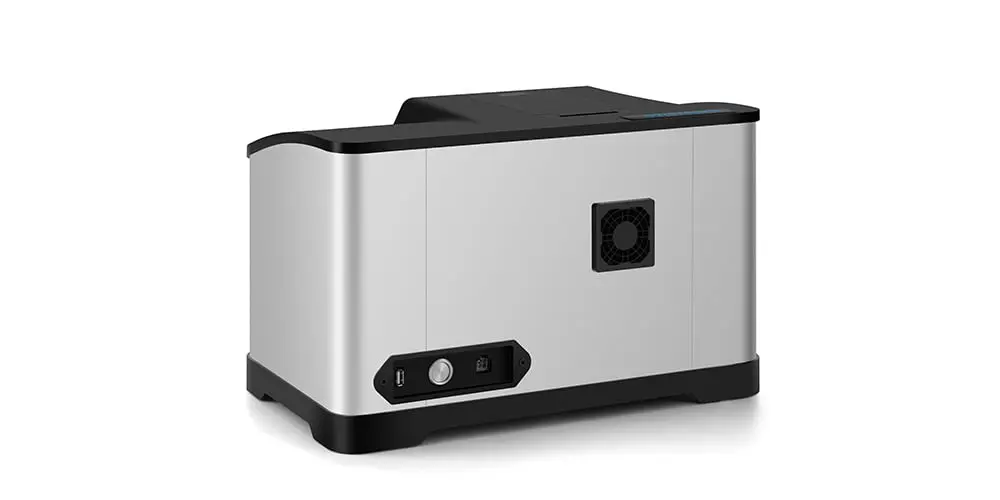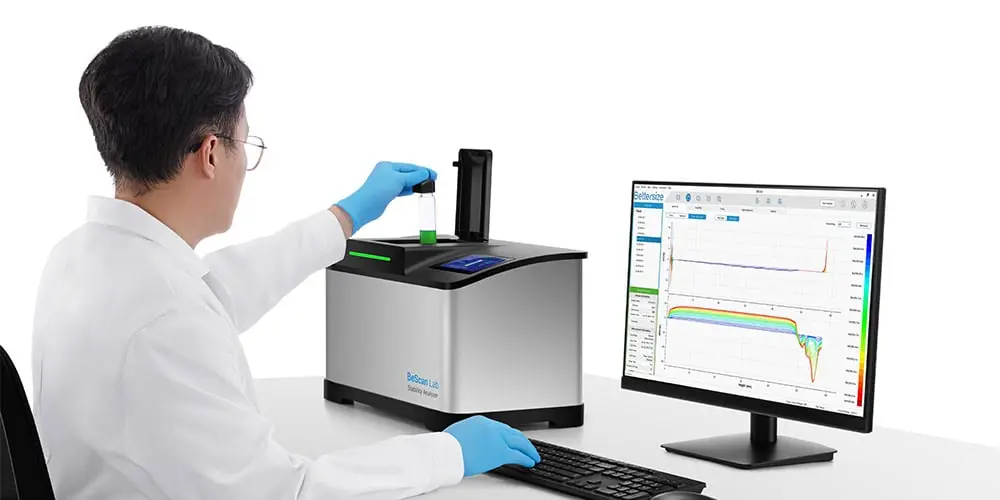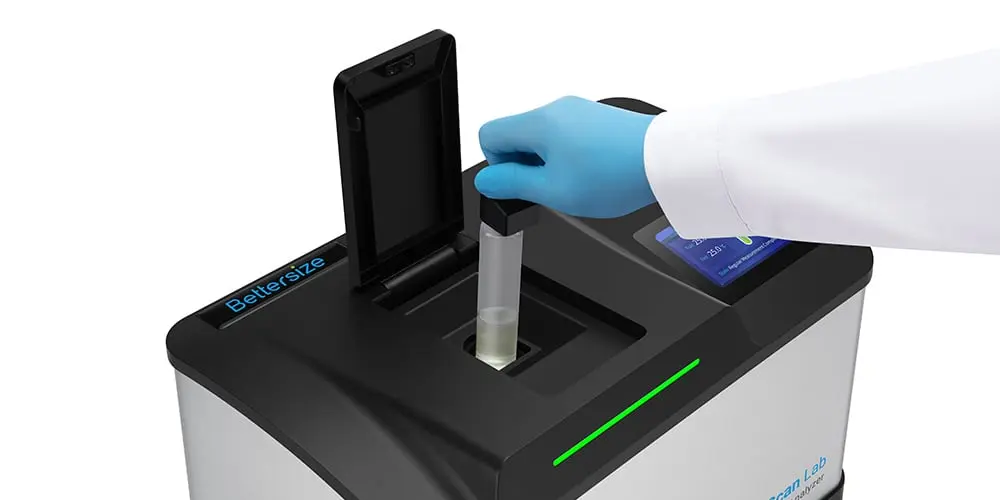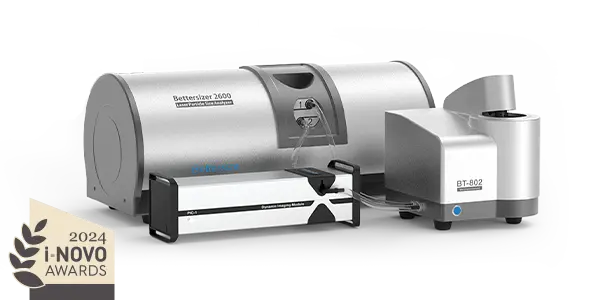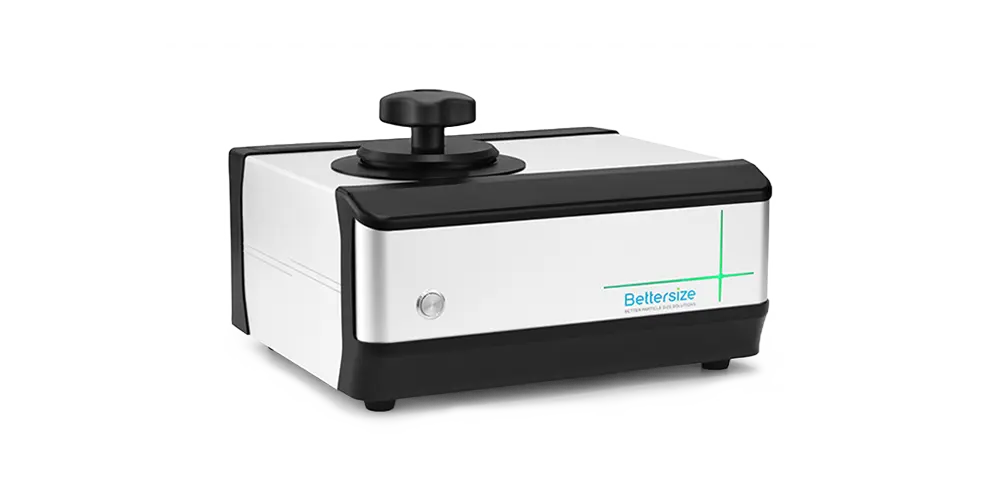BeScan Lab
The BeScan Lab is a versatile, sensitive, and reliable stability analyzer utilizing Static Multiple Light Scattering (SMLS) technology. It is widely employed in formulation development and product quality control. This analyzer can handle a broad range of sample concentrations (up to 95% v/v) and various types such as emulsions, suspensions, and foams, with temperature scanning capabilities up to 80°C. BeScan Lab offers both qualitative analysis and quantitative detection of destabilization, aiding in achieving long-term product stability and optimal shelf life.
Features and Benefits
- ● Real stability analysis for dispersions with volume fraction up to 95%.
- ● Particle size ranges from 10 nm to 1 mm.
- ● Non-destructive testing: non-contact, non-diluting, and non-shearing.
- ● Data acquisition with a resolution of 20 μm enables quicker observation of sample stability than with the naked eye.
- ● Precise temperature control up to 80°C to accelerate unstable phenomena.
- ● Identification of various unstable phenomena: creaming, sedimentation, flocculation, coalescence, and breaking.
- ● Quantification of destabilizations and study of mechanisms.
Video
Overview of BeScan Lab | Stability Analyzer 
Overview
Curated Resources
- Flyer

Related Instruments
-
Bettersizer 2600
Particle Size & Shape Analyzer
Measurement range: 0.02 - 2,600μm (Wet dispersion)
Measurement range: 0.1 - 2,600μm (Dry dispersion)
Measurement range: 2 - 3,500μm (Dynamic imaging)
-
Bettersizer S3 Plus
Laser Diffraction Particle Size Analyzer
Measurement range: 0.01 - 3,500μm (Laser System)
Measurement range: 2 - 3,500μm (Image System)
-
Bettersizer ST
One-stop Particle Size Analyzer
Dispersion type: Wet
Measurement range: 0.1 - 1,000µm
Repeatability: ≤1% variation
-
BetterPyc 380
Automatic Gas Pycnometer
Technology: Gas Displacement Method
Temperature Range: 10 - 65 ℃
Resolution: 0.0001 g/cm³

